An Interview with Marc Levy, France’s Widest Read Author
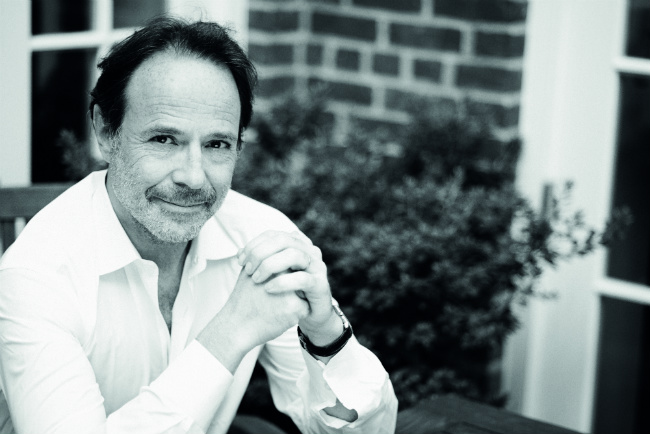
Marc Levy is one of France’s – and the world’s – favourite writers. His prolific output is proof that he is also a worker bee. For him, writing is an art and a craft. His artistry and hard work pay off, too: every book Levy has written has hit the bestseller lists in France. Levy’s novels’ global popularity speaks to the timeless – and boundary-less– human themes found in his books. His stories tell of love, loss, heartbreak, adventures, new beginnings and the ever-changing landscape of human emotions. Many of his works have been adapted for film and television as well. His first novel, Et si c’était vrai… (If Only It Were True) became the 2005 hit, Just Like Heaven, starring Reese Witherspoon and Mark Ruffalo.
It’s said that there are no new stories, and that everything has been done before. And that may be so, but the lens through which Levy views the world – a lens composed partly of French culture, his work at the Red Cross, and his foundation of family and friends – is uniquely his own. No one tells a Marc Levy story like Marc Levy.
Born in Boulogne-Billancourt, Levy now lives in New York City with his family. I was fortunate enough to speak with him in February, right after he returned from a visit home to France. Communicating with him, another quality shone through: in addition to his artistic sense and commendable work ethic, he also possesses a great kindness, reliability, and a level of down-to-earth humility. One often hopes that great people will still be great to you after you meet them (upending the ‘never meet your heroes’ adage), and I’m happy to report that Levy delivered.
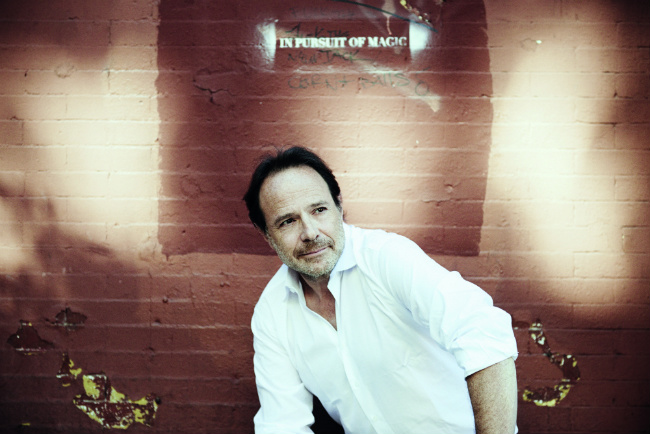
Author Marc Levy. Photo: Christian Geisselmann
France Today: How do you come up with the ideas for your novels?
Marc Levy: They come from everyday life and life has more imagination than I do. I like to watch and listen, I like to observe the world around me. The smallest thing can spark an idea. But an idea alone is not yet a story and might never become one. I live with the characters around with me for a long time, whilst their personalities develop and the plot takes shape. When I’ve finished my research, when I can answer the question, ‘What is this story really trying to say?’ – that’s when I’m ready to embark on a journey.
FT: Of all of the books you’ve written, which is your favourite – and why?
ML: I don’t believe I have a favourite one, they’re all different. With each book I’ve made a concerted effort to never limit myself to one genre and to never tell the same story twice. I really enjoy starting each book with a complete sense of beginning anew – be it for a comedy, thriller, saga, or an adventure novel. That’s the magic of my job, travelling into different continents of words. Each book is for me a way to explore new horizons – and there are still many lands I have yet to discover… Each novel is an opportunity to encounter new characters who, by the end, will be friends.
FT: Why do you think your books have been so popular internationally, as well as in France?
ML: I have no idea, and I don’t want to know. I’m not interested enough in myself. Let’s say that I never thought I’d be successful. I have had tremendous luck but also, I’ve worked a lot to deserve it. Because there is no miracle recipe and every book represents thousands of hours of work. I can promise that, before one of my books is published, I never know whether it’s going to find an audience. I work a lot and am never sure of how it will play out. Writing is a craft. Through my stories and characters, I try to convey values that have been passed on to me. Many people share these values, but they don’t always come up in everyday life.
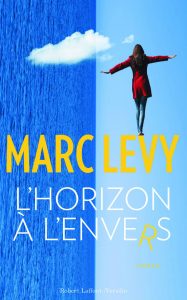
“L’horizon à l’envers” by Marc Levy
FT: If you had to generalise, do you think there are certain characteristics that French writers have (due to their cultural outlook or education) that writers of other nationalities may not have to the same degree?
ML: I don’t think so. I don’t believe in boundaries, even less in literature. While some people want to build walls, writers draw horizons. Where short-sighted politicians wants to divide humans because of their colour, faith or nationality – fearing difference – writers embrace the world’s diversity. Also, to answer this question definitively would require a perfect knowledge of every culture and every book published…
FT: What do you miss most about France, now that you live in New York City?
ML: My friends and family. Otherwise I don’t feel really estranged from France. Every morning I read the news and keep myself informed on politics and cultural life.
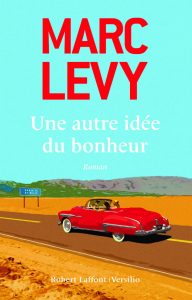
“Une autre idée du bonheur” by Marc Levy
FT: What is your favourite place in France?
ML: A French bistro!
FT: Are you working on another book right now, and if so, can you share any details about it?
ML: In France, my novel La Dernière des Stanfield was published on April 20, and another book, P.S. from Paris, will be published in the United States in early August.
FT: You’ve said “I’m always missing them when I’m finished writing” of the characters you’ve created. Which particular characters do you most miss writing about, and why?
ML: I wrote a sequel of If Only It Were True because I missed the main characters, Lauren and Arthur. And in a way I miss Ethan Daldry, because he’s the character I felt the closest to. I can easily imagine him as a friend.
FT: What were some of your favourite books when you were a child?
ML: Jules Verne’s novels.
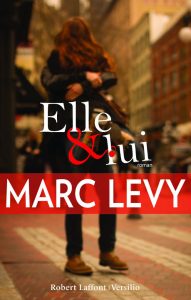
“Elle & Lui” by Marc Levy
FT: How do you think that your work at the Red Cross impacted your writing or outlook?
ML: I could never repay the Red Cross for all that it gave me as a young man. I hear those who say that today’s world is individualistic, and it’s true that society doesn’t reach out to you first, but this doesn’t stop you from reaching out to others. When I joined the Red Cross at 18 I was immediately given a place in society.
FT: Does the current global political climate have any impact on your writing? And as a Frenchman living in the U.S., what do you think of the recent changes and developments in the U.S. government?
ML: I am a guest in the U.S., it’s not my role to comment on the government. But as a citizen of the world, I disagreed with the motto ‘Make America Great Again’, because it would take a very spoiled adult to think that America wasn’t already great. Traveling around the world, you will certainly see how great America has been for a long time. Also, I am wondering if spending 21 billion dollars on health care, cancer research, education, building hospitals, schools, and raising the payroll of teachers wouldn’t make America even greater than using it to build a wall. But that’s just a suggestion.
FT: What would you be doing today if you weren’t busy being a successful writer?
ML: When I was young I dreamt of becoming of doctor, but I wasn’t good enough at math. And I have to confess that I haven’t improved in that field. I love cooking for my friends, but that doesn’t make a chef of me. Writing is my passion, so let’s hope I won’t have to ask myself your question in the near future.
FT: Can you tell us what your favourite part of the writing process is?
ML: Every part: researching, building the plot, developing my characters, spending time with them… My least favourite part though would be when my novel is being published, as I get really nervous.
FT: And finally, what advice would you give to aspiring writers?
ML: Never think of publication, write for the freedom it provides you with.
From France Today magazine
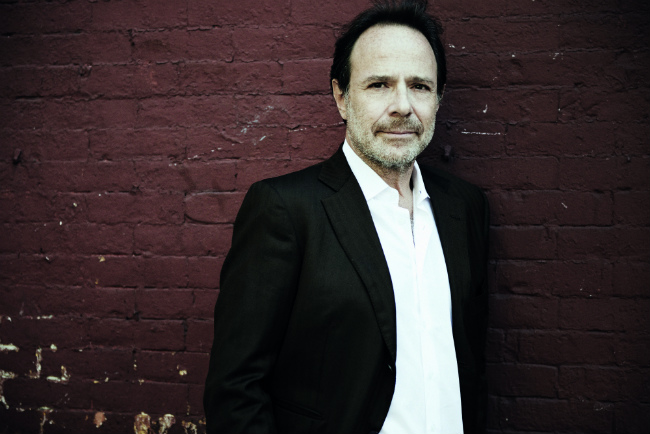
Author Marc Levy. Photo: Christian Geisselmann
Share to: Facebook Twitter LinkedIn Email
Leave a reply
Your email address will not be published. Required fields are marked *



